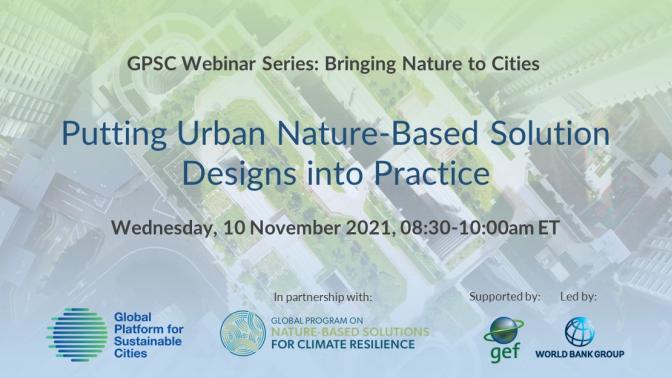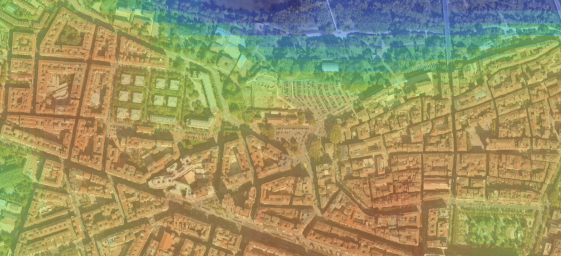The World Bank’s webinar series “Bringing Nature to Cities: Integrated Urban Solutions to Biodiversity Loss and Climate Change” promotes integrated urban solutions for cities to tackle biodiversity loss and climate change. Co-hosted by the Global Platform for Sustainable Cities (GPSC) and the Global Program on Nature-Based Solutions for Climate Resilience, the series of thematic events provides an online knowledge exchange platform connecting policymakers, practitioners, and experts to further mainstream biodiversity considerations into cities and development projects.
This session on “Putting Urban Nature-Based Solution Designs into Practice” focused on best practices and challenges in the identification, implementation and monitoring of Nature-Based Solutions (NBS) on the city scale. It drew from the World Bank’s recently launched Catalogue on Urban Nature-Based Solutions and highlighted examples of successful urban NBS interventions targeted at reducing urban flooding and addressing other urban health and environmental issues.
Welcome
Niels Holm-Nielsen Practice Manager, Global Facility for Disaster Reduction and Recovery (GFDRR), World Bank
Presenters
Nadya Nilina, Project Leader, Felixx Landscape Architects & Planners
Suzanne Ozment, Senior Associate, Natural Infrastructure, WRI
Panel Discussion
Yvonne Aki-Sawyerr OBE, Mayor of Freetown, Sierra Leone
Arnoud Molenaar, Chief Resilience Officer, City of Rotterdam
Kate Orff, Founding Principal, SCAPE
Jane Madgwick, Chief Executive Officer, Wetlands International
Moderator
Larissa Duma, Urban Ecology and Resilience Expert, World Bank
Closing Remarks
Sameh Wahba, Global Director, Urban, Disaster Risk Management, Resilience and Land Global Practice, World Bank
Bios
 Niels Holm-Nielsen is the Practice Manager for GFDRR, which is a multi-donor partnership within the World Bank that funds technical assistance and advisory services to improve climate and disaster risk management (DRM) at country, city, and community levels. Prior to taking up his current position, Niels was the World Bank’s Global Technical Lead for Resilience and DRM, supporting team leads and managers to deliver the highest possible technical quality of DRM services to our clients. He has led and co-led the creation and implementation of a series of global technical assistance and knowledge service partnerships, including risk reduction for education facilities as well as the City Resilience Program. He joined the World Bank in 2006 as Junior Professional Officer in Middle East and North Africa region after working for the Inter-American Development Bank for five years, and has also been Lead DRM Specialist for the Africa region, and the Latin America and Caribbean region for the World Bank. He holds a M.Sc. in Political Science from the University of Aarhus, Denmark.
Niels Holm-Nielsen is the Practice Manager for GFDRR, which is a multi-donor partnership within the World Bank that funds technical assistance and advisory services to improve climate and disaster risk management (DRM) at country, city, and community levels. Prior to taking up his current position, Niels was the World Bank’s Global Technical Lead for Resilience and DRM, supporting team leads and managers to deliver the highest possible technical quality of DRM services to our clients. He has led and co-led the creation and implementation of a series of global technical assistance and knowledge service partnerships, including risk reduction for education facilities as well as the City Resilience Program. He joined the World Bank in 2006 as Junior Professional Officer in Middle East and North Africa region after working for the Inter-American Development Bank for five years, and has also been Lead DRM Specialist for the Africa region, and the Latin America and Caribbean region for the World Bank. He holds a M.Sc. in Political Science from the University of Aarhus, Denmark. 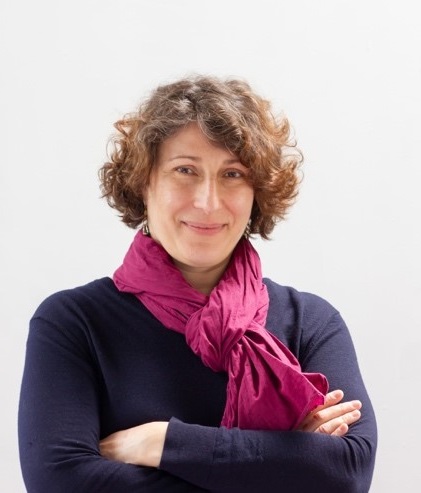 Nadya Nilina is an urban planner with Felixx Landscape Architects & Planners. Educated in the US, Nadya has over fifteen years of experience leading interdisciplinary public and private sector planning and design projects in the US, Europe, Russia, Ukraine and the Middle East. Focusing on climate adaptation for the urban environments, Nadya integrates water management and Nature-based Solutions to create resilient environments in different social, economic and cultural contexts. In addition to her expertise in urban planning, Nadya uses her education in urban sociology to work with diverse groups of stakeholders in designing long-range strategic as well as site-specific local projects that require public participation and sustained local stewardship for their implementation. Nadya frequently collaborates with ecologists and other scientist to develop complex integrated solutions and shares her time at the office with teaching landscape-based urban design, history and theory at a number of universities across the globe.
Nadya Nilina is an urban planner with Felixx Landscape Architects & Planners. Educated in the US, Nadya has over fifteen years of experience leading interdisciplinary public and private sector planning and design projects in the US, Europe, Russia, Ukraine and the Middle East. Focusing on climate adaptation for the urban environments, Nadya integrates water management and Nature-based Solutions to create resilient environments in different social, economic and cultural contexts. In addition to her expertise in urban planning, Nadya uses her education in urban sociology to work with diverse groups of stakeholders in designing long-range strategic as well as site-specific local projects that require public participation and sustained local stewardship for their implementation. Nadya frequently collaborates with ecologists and other scientist to develop complex integrated solutions and shares her time at the office with teaching landscape-based urban design, history and theory at a number of universities across the globe.  Suzanne Ozment is Senior Associate with the World Resources Institute's (WRI) Natural Infrastructure Initiative, where she researches the design of profitable nature-based solutions to water insecurity and climate change. She works with business, financial institutions, government, water utilities, and civil society to scope out smart investment opportunities to protect and restore watersheds, and to advance policies that enable strategic watershed management. Previously at WRI, Suzanne led WRI’s Business and Ecosystem Services Project, researching the interconnections between corporate performance and ecosystem change. She has trained and advised dozens of companies to use The Corporate Ecosystem Services Review, one of the most widely used ecosystem service assessment tools in the world. Outside WRI, Suzanne has worked in sustainability research at the University of Arkansas Walton College of Business and environmental advocacy at the Ecological Society of America. She has served as a Teaching Fellow at the Yale School of Management and a Consultant for NatureServices Peru, the first certified B Corp in Peru. Suzanne earned her Masters of Environmental Management degree from Yale University and her B.A. in Environmental Science and Government from Lawrence University. She is a Yale Fox International Fellow and a Kinship Conservation Fellow.
Suzanne Ozment is Senior Associate with the World Resources Institute's (WRI) Natural Infrastructure Initiative, where she researches the design of profitable nature-based solutions to water insecurity and climate change. She works with business, financial institutions, government, water utilities, and civil society to scope out smart investment opportunities to protect and restore watersheds, and to advance policies that enable strategic watershed management. Previously at WRI, Suzanne led WRI’s Business and Ecosystem Services Project, researching the interconnections between corporate performance and ecosystem change. She has trained and advised dozens of companies to use The Corporate Ecosystem Services Review, one of the most widely used ecosystem service assessment tools in the world. Outside WRI, Suzanne has worked in sustainability research at the University of Arkansas Walton College of Business and environmental advocacy at the Ecological Society of America. She has served as a Teaching Fellow at the Yale School of Management and a Consultant for NatureServices Peru, the first certified B Corp in Peru. Suzanne earned her Masters of Environmental Management degree from Yale University and her B.A. in Environmental Science and Government from Lawrence University. She is a Yale Fox International Fellow and a Kinship Conservation Fellow. 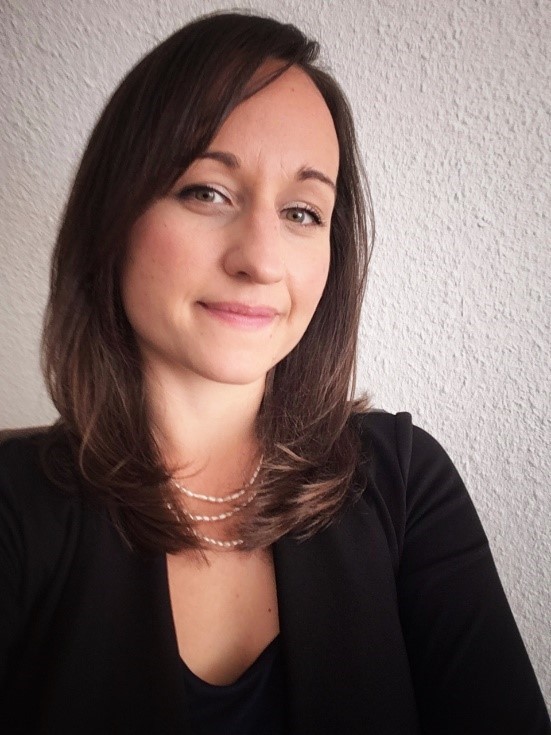 Larissa Duma is an Urban Ecology and Resilience Expert at The World Bank. Her work has focused on place-based solutions to urbanization, resilience and environmental challenges. Larissa has extensive experience in understanding the interchange between governance, environmental and cultural dynamics and their influences on urbanization patterns especially for unplanned urban poor settlements. Her professional portfolio includes supporting and establishing urban ecology and management systems, urban resilience and environmental monitoring systems and analytics, environmental sanitation and urban service delivery. To support these initiatives, Larissa works with multi-faceted specialist teams and stakeholder groups to establish and provide simplified, cost effective, and locally-based data collection and analytic tools, frameworks and software. Currently, most of her work harnesses and integrates nature-based solutions and green infrastructure within existing urban frameworks to support disaster risk reduction, urban environmental management, enhanced ecosystem service delivery, and foster sustainable livable cities.
Larissa Duma is an Urban Ecology and Resilience Expert at The World Bank. Her work has focused on place-based solutions to urbanization, resilience and environmental challenges. Larissa has extensive experience in understanding the interchange between governance, environmental and cultural dynamics and their influences on urbanization patterns especially for unplanned urban poor settlements. Her professional portfolio includes supporting and establishing urban ecology and management systems, urban resilience and environmental monitoring systems and analytics, environmental sanitation and urban service delivery. To support these initiatives, Larissa works with multi-faceted specialist teams and stakeholder groups to establish and provide simplified, cost effective, and locally-based data collection and analytic tools, frameworks and software. Currently, most of her work harnesses and integrates nature-based solutions and green infrastructure within existing urban frameworks to support disaster risk reduction, urban environmental management, enhanced ecosystem service delivery, and foster sustainable livable cities.  Yvonne Aki-Sawyerr OBE was sworn-in in May 2018 with a commitment to transform Freetown using an inclusive, data-driven approach to address challenges in the city. The 4-year Transform Freetown plan details concrete targets across 11 sectors and covers issues ranging from tackling environmental degradation and climate change to facilitating the creation of jobs to reduce youth unemployment. A finance professional with over 25 years of private sector experience in strategic planning, risk management consulting and project management, Mayor Aki-Sawyerr’s public sector engagement began with her work during the 2014-2015 Ebola epidemic and her subsequent role as Delivery Team Lead for the second phase of a multi-stakeholder programme to drive socio-economic recovery in Sierra Leone post Ebola. Mayor Aki-Sawyerr was featured by Time Magazine in the Time100 Next 2021 List and by the BBC in the BBC 100 Women 2020 List. She is Vice Chairperson for the C40 Cities Global Group Steering Committee. She is a Chartered Accountant and holds an MSc in Politics of the World Economy from the London School of Economics and a BSc Hons in Economics from Fourah Bay College.
Yvonne Aki-Sawyerr OBE was sworn-in in May 2018 with a commitment to transform Freetown using an inclusive, data-driven approach to address challenges in the city. The 4-year Transform Freetown plan details concrete targets across 11 sectors and covers issues ranging from tackling environmental degradation and climate change to facilitating the creation of jobs to reduce youth unemployment. A finance professional with over 25 years of private sector experience in strategic planning, risk management consulting and project management, Mayor Aki-Sawyerr’s public sector engagement began with her work during the 2014-2015 Ebola epidemic and her subsequent role as Delivery Team Lead for the second phase of a multi-stakeholder programme to drive socio-economic recovery in Sierra Leone post Ebola. Mayor Aki-Sawyerr was featured by Time Magazine in the Time100 Next 2021 List and by the BBC in the BBC 100 Women 2020 List. She is Vice Chairperson for the C40 Cities Global Group Steering Committee. She is a Chartered Accountant and holds an MSc in Politics of the World Economy from the London School of Economics and a BSc Hons in Economics from Fourah Bay College. 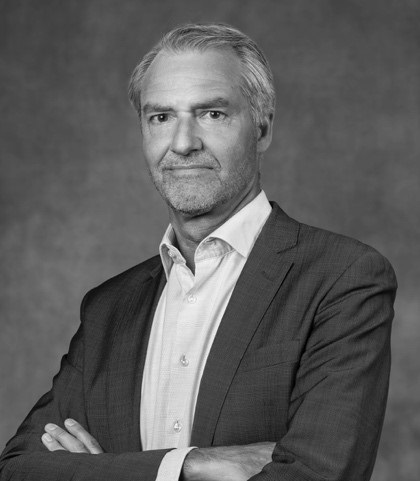 Arnoud Molenaar. After graduating in Physical Geography, Arnoud started his career with ambitious trainee posts and jobs abroad. As deputy head of the Rotterdam Water Management Department, he was responsible for the Waterplan2Rotterdam. In 2008, he was appointed Manager of the Rotterdam Climate Proof program. Arnoud is first editor of the book “Resilient Cities and Climate Adaptation Strategies” (2014). He was responsible for Rotterdam’s first Resilience Strategy (2016) and joined the Global Centre on Adaptation as lead Cities (2018). In 2019 he hosted the Global Urban Resilience Summit in Rotterdam. Recently he joined the Global Steering Committee at the Resilient Cities Network.
Arnoud Molenaar. After graduating in Physical Geography, Arnoud started his career with ambitious trainee posts and jobs abroad. As deputy head of the Rotterdam Water Management Department, he was responsible for the Waterplan2Rotterdam. In 2008, he was appointed Manager of the Rotterdam Climate Proof program. Arnoud is first editor of the book “Resilient Cities and Climate Adaptation Strategies” (2014). He was responsible for Rotterdam’s first Resilience Strategy (2016) and joined the Global Centre on Adaptation as lead Cities (2018). In 2019 he hosted the Global Urban Resilience Summit in Rotterdam. Recently he joined the Global Steering Committee at the Resilient Cities Network. Kate Orff, RLA, FASLA, is the Founding Principal of SCAPE. She focuses on retooling the practice of landscape architecture relative to the uncertainty of climate change and creating spaces to foster social life, which she has explored through publications, activism, research, and projects. She is known for leading complex, creative, and collaborative work processes that advance broad environmental and social prerogatives. In 2019, Kate was elevated to the American Society of Landscape Architects (ASLA) Council of Fellows—one of the highest honors bestowed on landscape architects practicing in the U.S. Kate was awarded the prestigious MacArthur Foundation Fellowship in 2017, the first given in the field of landscape architecture. In 2019, she accepted a National Design Award from the Cooper Hewitt, National Design Museum, on behalf of SCAPE, and was named a Hero of the Harbor by the Waterfront Alliance. She was a 2012 United States Artist Fellow, dubbed an Elle Magazine “Planet Fixer,” and has been profiled and interviewed extensively for publications including The New York Times, The Washington Post, The Economist, National Geographic, The New Yorker and more. Kate graduated with a Bachelor’s in Political and Social Thought from the University of Virginia with Distinction and earned a Master’s in Landscape Architecture from the Graduate School of Design (GSD) at Harvard University. She is also the Director of the Urban Design Program, Co-Director of the Center for Resilient Cities and Landscapes (CRCL), and Professor at Columbia University’s Graduate School of Architecture, Planning and Preservation (GSAPP).
Kate Orff, RLA, FASLA, is the Founding Principal of SCAPE. She focuses on retooling the practice of landscape architecture relative to the uncertainty of climate change and creating spaces to foster social life, which she has explored through publications, activism, research, and projects. She is known for leading complex, creative, and collaborative work processes that advance broad environmental and social prerogatives. In 2019, Kate was elevated to the American Society of Landscape Architects (ASLA) Council of Fellows—one of the highest honors bestowed on landscape architects practicing in the U.S. Kate was awarded the prestigious MacArthur Foundation Fellowship in 2017, the first given in the field of landscape architecture. In 2019, she accepted a National Design Award from the Cooper Hewitt, National Design Museum, on behalf of SCAPE, and was named a Hero of the Harbor by the Waterfront Alliance. She was a 2012 United States Artist Fellow, dubbed an Elle Magazine “Planet Fixer,” and has been profiled and interviewed extensively for publications including The New York Times, The Washington Post, The Economist, National Geographic, The New Yorker and more. Kate graduated with a Bachelor’s in Political and Social Thought from the University of Virginia with Distinction and earned a Master’s in Landscape Architecture from the Graduate School of Design (GSD) at Harvard University. She is also the Director of the Urban Design Program, Co-Director of the Center for Resilient Cities and Landscapes (CRCL), and Professor at Columbia University’s Graduate School of Architecture, Planning and Preservation (GSAPP). 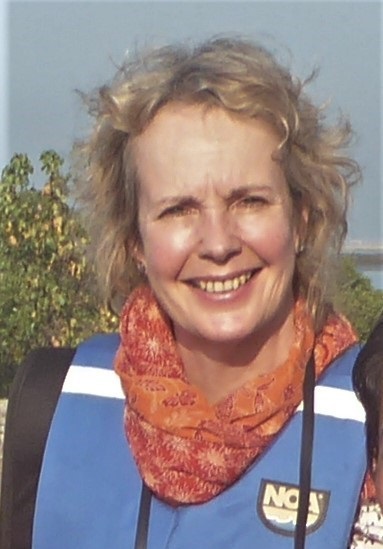 Jane Madgwick is an ecologist and author with 30 years of experience of working internationally on the science, policy and practice of wetlands and water management. Previously Jane worked for WWF in Europe and Australia. Since 2004, she has been CEO of Wetlands International, leading a network of 20 offices operating in over 100 countries. This global team works to mobilise the conservation and restoration of all kinds of wetlands, connecting science, policies and practices for biodiversity, resilient communities and reduced climate risks. The long-term aim is to transform whole landscapes and sectors, enabling joined up ecological and social resilience. Jane is prominent in building partnerships and global dialogues to this end.
Jane Madgwick is an ecologist and author with 30 years of experience of working internationally on the science, policy and practice of wetlands and water management. Previously Jane worked for WWF in Europe and Australia. Since 2004, she has been CEO of Wetlands International, leading a network of 20 offices operating in over 100 countries. This global team works to mobilise the conservation and restoration of all kinds of wetlands, connecting science, policies and practices for biodiversity, resilient communities and reduced climate risks. The long-term aim is to transform whole landscapes and sectors, enabling joined up ecological and social resilience. Jane is prominent in building partnerships and global dialogues to this end. 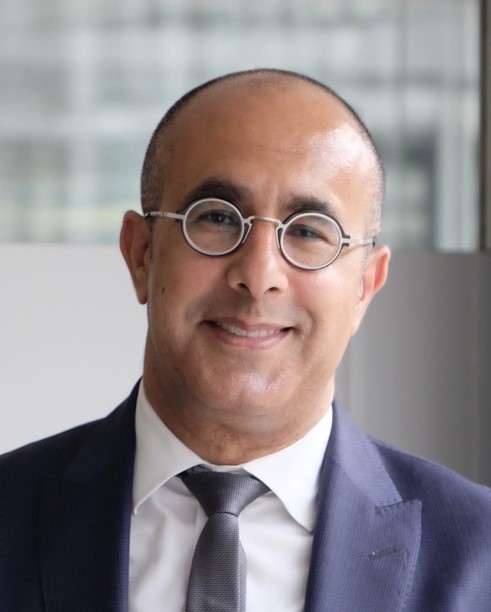 Sameh Wahba, an Egyptian national, is the Global Director for the World Bank’s Urban, Disaster Risk Management, Resilience and Land Global Practice, based in Washington, D.C. The Global Practice, which also covers territorial development, geospatial and results-based-financing issues, has a portfolio of close to $30 billion in commitments in investment projects, program-for-results and development policy lending, and about 450 staff.
Sameh Wahba, an Egyptian national, is the Global Director for the World Bank’s Urban, Disaster Risk Management, Resilience and Land Global Practice, based in Washington, D.C. The Global Practice, which also covers territorial development, geospatial and results-based-financing issues, has a portfolio of close to $30 billion in commitments in investment projects, program-for-results and development policy lending, and about 450 staff. 


